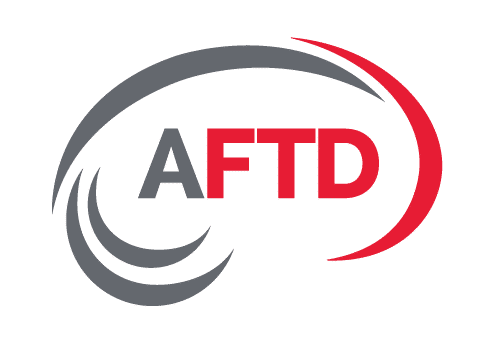A Community Update from AFTD’s CEO

An Update from AFTD’s CEO on
Diversity, Equity, and Inclusion in Our Work
In July 2020, AFTD shared a public statement regarding diversity, equity, and inclusion in our work. We pledged to:
- Be more proactive in our outreach, sharing information about FTD, the importance of an accurate diagnosis, and opportunities to participate in research with more individuals and families of color.
- Expand our program and service delivery to make AFTD’s information, support, and resources more accessible to those we don’t effectively reach today.
- Implement internal processes and accountability measures to increase diversity, inclusion and representation on our Board, staff, and in key volunteer roles.
We know that the work we’ve taken on in these areas has only begun – and it will require continued attention for the months and years ahead. But over the past year, AFTD has made critical gains and learned vital lessons:
- In late 2020, AFTD established a formal Persons with FTD Advisory Council. Today, six members of the Council, all living with an FTD diagnosis, are helping to ensure that the insights and voices of people living with FTD are considered in the development of AFTD policies, programs, and services.
- Beginning in fall 2020, AFTD and the FTD Disorders Registry conducted an FTD Insights Survey, learning from 1,799 people across the United States and beyond about the lived experience of each form of FTD. Together with more than 550 people from across our community, we leveraged that input to bring the lived experience of FTD and vital information about the urgent need for disease-modifying treatments to the FDA, through AFTD’s March 5 Externally Led Patient-Focused Drug Development meeting on FTD. Community members who spoke at the event reflected a diverse range of perspectives on every form of FTD.
- Yet our FTD Insights Survey has also showed us some of the limitations of our work today. The vast majority of respondents were White or Caucasian, and as a result we know that our survey did not capture the full diversity of the general population. Participants were also far more likely than the general population to hold a Master’s degree or Ph.D. This highlights a key priority for AFTD’s work going forward: to ensure that access to an FTD diagnosis is available across economic, social, and health disparities, and that we prioritize further our outreach to people and families who have struggled to gain an effective diagnosis.
- In May 2021, AFTD presented its 2021 Education Conference fully online, free of charge for all who sought to attend. More than 1,200 people from nine countries attended – making vital information, resources, and support available to more people than ever.
- Beginning next week, we are adding translation services to AFTD’s HelpLine, so that our advisors can provide guidance and support regardless of the language spoken by the caller.
- We have begun translating key materials on FTD into Spanish; initial content will be offered next week, with new content to be added on an ongoing basis.
- We have also prioritized accessibility of care and support in our research grant funding. As one example, our 2020 Well-Being in FTD Pilot Grant supported Allison Lindauer, Ph.D., of Oregon Health & Science University in bringing telehealth technology to benefit FTD caregivers in rural locations. This intervention is likely to have powerful positive implications in making support more accessible for care partners.
AFTD is tending proactively to the inclusiveness of our own internal culture. Managers have received training on inclusive leadership, and protocols have been implemented to ensure that all staff are trained on unconscious bias and respectful workplace practices. We have expanded the tools and procedures we use to recruit new members of both our staff and Board, to identify and attract a broader diversity of candidates. And AFTD Board members and staff across the organization have met in recent months with a lead for Workforce Training and Consulting from Morgan, Lewis and Bockius, to discuss opportunities and needs to foster diversity, equity, and inclusion across AFTD’s work and organizational culture.
We know that the COVID-19 pandemic continues to compound the difficulties of the FTD journey, for all whom we serve. New challenges and new injustices have impacted communities across the country. While our work will always remain focused on FTD, AFTD is committed to ensuring that all benefit from our mission, regardless of race, ethnicity, sexual orientation, gender identity and gender expression, nationality, socioeconomic standing, or immigration status.
Much work remains. We are committed to bringing our mission and our vision of a world with compassionate care, effective support, and a future free of FTD to all who can benefit from it.
We appreciate your partnership in this work, and we welcome your feedback. Planning is now underway to develop AFTD’s next strategic plan. To ensure that our work benefits from the perspective of all in our community, next week we will be inviting you to help inform our priorities for the years ahead. We hope that you will share our outreach far and wide within your own community, to ensure that we are drawing from the most diverse set of perspectives we can in shaping the future of this work. Thank you in advance for making your voice heard.

Susan L-J Dickinson, MSGC
Chief Executive Officer, AFTD
By Category
Our Newsletters
Stay Informed
Sign up now and stay on top of the latest with our newsletter, event alerts, and more…
